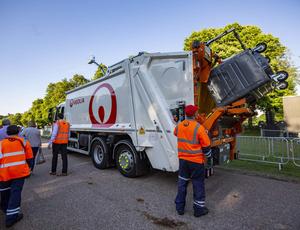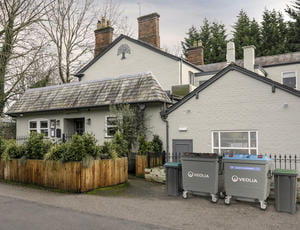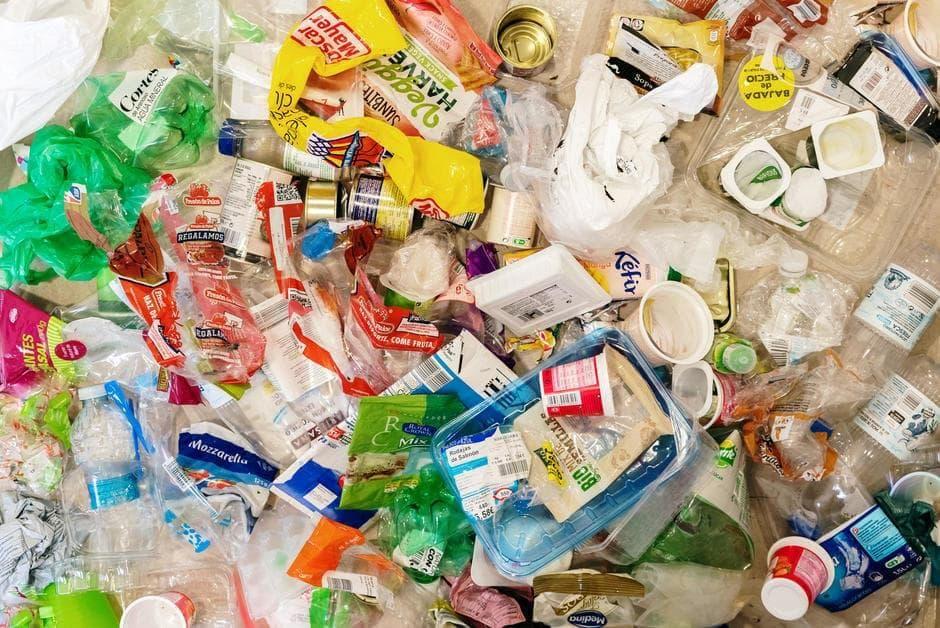The Department for Environment, Food and Rural Affairs (DEFRA) has announced £1.2m funding for councils to clean up chewing gum. In addition, Zero Waste Scotland (ZWS) publishes the environmental impact of disposable vapes review.
DEFRA: £1.2m funding for councils to clean up chewing gum
The Department for Environment, Food and Rural Affairs (DEFRA) has announced that more than 50 councils across the UK are to receive grants of more than £1.2 million to remove discarded chewing gum from the streets and prevent it from being littered again.
The Chewing Gum Task Force aims to clean gum off pavements and put in measures to stop it from being dropped in the first place, helping clamp down on littering. This announcement came alongside further steps to deliver the Prime Minister’s Anti-Social Behaviour Action Plan, which sets out the government’s approach to ensuring these issues are treated with a zero-tolerance approach to all forms of anti-social behaviour and giving the police and local authorities the tools they need to tackle the problem.
Zero Waste Scotland publishes environmental impact of disposable vapes review
Zero Waste Scotland has published a review completed on behalf of the Scottish government on the environmental impact of disposable vapes and a review to investigate improving the management of single-use e-cigarettes, reducing pollution and enhancing the safe recycling of the materials they contain.
The report estimates that, in 2022, 10.8% of the adult population in Scotland were regular users of e-cigarettes and that, of these, 27% were estimated to be users of single-use e-cigarettes. Environmental impacts highlighted by the review include the waste impact of littering; risks associated with unsafe disposal of their contents; and greenhouse gas emissions and water consumption generated in their manufacture.
Environment Agency: National waste crime survey
The Environment Agency (EA) has released its National Waste Crime Report. The EA set up the national waste crime survey to gain insight into the nature and scale of waste crime in England, as perceived by those experiencing it, such as members of the waste industry, service providers (such as local authorities and environmental consultants) and landowners/farmers. This also serves as an independent metric on waste crime.
The report has found:
- The waste industry estimates waste crime costs the English economy a total of £1bn annually through evaded tax, environmental and social harm, and lost legitimate business.
- An estimated 18% of all waste is being illegally managed. 44% of organisations within the waste industry and 52% of landowners/farmers are affected by this issue.
- The perception that the Environment Agency provides an effective deterrent is low, primarily due to perceived inadequate reporting mechanisms and unsatisfactory enforcement responses.
- Just 25% of waste crime is thought to be reported to the Environment Agency. Waste crime remains big business, with an estimated 34m tonnes of criminally managed waste a year.
The report concludes that waste crime is a problem that impacts the waste industry, private landowners, the environment, and the economy. The EA has reassured that the findings will be used to inform its strategic approach to tackling waste crime, where to direct its resources and how it works with the industry, its customers and its partners.
-Further Reading-
DEFRA: Introduces second round of grants to tackle fly tipping
The Department for Environment, Food & Rural Affairs (DEFRA) have announced another round of funding grants to help local authorities in England deliver projects to crack down on fly-tipping.
General Waste Collection
Safe, reliable and legal treatment of your general waste with minimal disruption to your business.
DEFRA: DIY Waste Charges Abolished
Council DIY waste charges are being abolished in the hope that households will be encouraged to dispose of waste in a positive manner.







